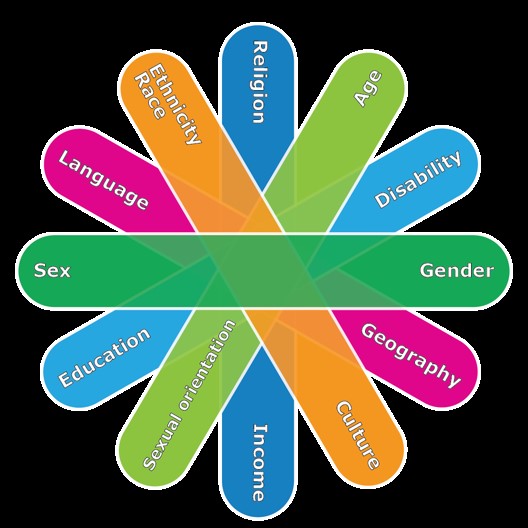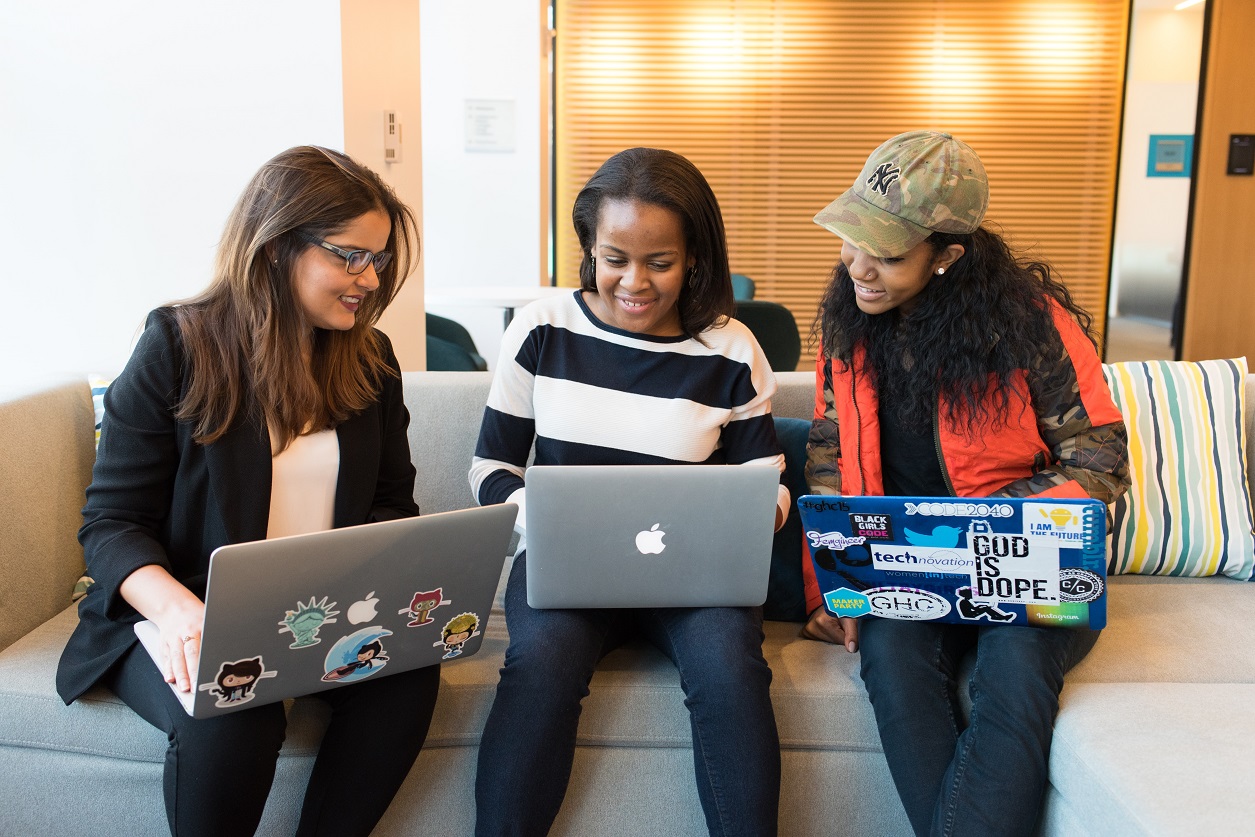
Gender-Based Analysis (GBA Plus) Blog Series (Part 2)
In the first part of our Gender-Based Analysis (GBA Plus) Blog Series, we examined the following:
- What is Gender-inclusive language?
- What are the benefits of Gender-Based Analysis Plus (GBA+/GBA Plus)?
- Tools for incorporating GBA Plus in your workplace
In part two, we will explore:
- Examples of GBA Plus
- What is intersectionality?
- Who in your organization is responsible for applying GBA Plus?
- CEC GBA Plus Services
Examples of GBA Plus
GBA Plus has resulted in a number of concrete policy successes for Canadians. In this blog post, we will discuss three examples, in: (1) Trade, (2) Natural Resources, and (3) Justice.
(1) Trade: The Government of Canada has applied GBA Plus to trade agreements in order to inform policymakers of how to consider diverse identity markers in trade deliverables. In this context, GBA Plus can:
- Help negotiators examine the pros and cons of Free Trade Agreements in terms of their impact on all Canadians.
- Assist policymakers in developing more gender-responsive trade policies.
- Examine the differential impact of agreements on people with disabilities, people of colour, Indigenous people, and small businesses, which are historically under-represented in trade negotiation.
- Understand the unique challenges that these groups face when it comes to trade and economic development.
As a result, the Government of Canada has reduced barriers for marginalized groups in trade, and developed targeted provisions to address issue-specific barriers.
(2) Natural Resources: Natural Resources Canada has also incorporated GBA Plus into their work, including through:
- Securing GBA Plus Advisors for each policy sector under the department.
- Creating a GBA Plus program design and delivery that uses consultation, research, and analysis on the impact of natural resource policies on different identity groups.
- Evaluating certain energy delivery programs to collect gender-disaggregated data, as well as data on Indigenous and youth participation.
Among other successes, this progress has resulted in the creation of energy programs and policy to enable equitable access, including The Clean Energy for Rural and Remote Communities program, Women in Cleantech Challenge, and the Smart Grid Program.
(3) Justice: The Department of Justice Canada has required all officials to complete GBA + training and integrate GBA Plus systematically into all programs. The Department has also:
- Recommended that GBA+ assessments be conducted at key stages on all initiatives.
- Created the GBA Plus Indicators Project, which measures the integration of GBA Plus in all departmental Cabinet Documents, Treasury Board Submissions and Budget Asks.
- The creation of new key programs, including the: Legal Advice for Complainants of Sexual Harassment in the Workplace, Legal Aid Program and Justice Partnership and Innovation Program; the Revitalization of Indigenous Laws and Legal Traditions, Justice Partnership and Innovation Program; and the Canadian Family Justice Fund.
In addition, senior governance bodies remain regularly engaged in strategic discussions to strengthen GBA+ across the Justice Department.
What is intersectionality?
The term “intersectionality” was a legal phrase created in 1989 by scholar and civil rights activist Kimberlé Crenshaw to explain how race interacts with gender and other factors to produce systemic and institutional societal barriers for Black women. Crenshaw’s work builds on a history of feminist activists working to define identity and equity, including the work of the Combahee River Collective, a black feminist lesbian organization, which defined the nexus between blackness and womanhood as the “synthesis of oppressions” in their 1978 Combahee River Collective Statement.
Today, intersectionality is understood more broadly as a framework for understanding how aspects of a person’s identity combine to create different modes of discrimination and privilege. Intersectionality recognizes that different identity markers, such as “disabled,” “rich,” or “man,” do not exist independently, but inform each other to make a complex nexus of identity. For example, while a white man in the US may make a dollar, a black man, a white woman, and a black woman make $0.74, $0.78, and $0.64 to that dollar respectively. These complex identity markers have concrete, material impacts on people’s lived experiences.

The GBA Plus intersectionality wheel utilized by the Government of Canada.
GBA Plus is built upon the concept of intersectionality, and also considers the context within which people live, including systems and structures of power. GBA Plus aims to provide a concrete framework to examine how these different factors of identity work together, what differences between groups of people are significant to your work, and how different groups interact differently with your organization.
Who in your organization is responsible for applying GBA Plus?
Building GBA Plus into your organization needs to be an active process, and an intersectional lens is key. When apply GBA Plus to concrete deliverables, a key question that organizations may have is, “Who is responsible for apply GBA Plus?”
The short answer is that everyone is responsible for applying an intersectional analysis to their work in order to achieve the full scope of your organization’s DEI goals. GBA Plus must be integrated from the leadership level to stakeholder communities in order to achieve full organizational accountability and open communication. GBA Plus should be viewed as an investment in long-term progress and effectiveness.
The Government of Canada recommends that everyone in an organization challenge their assumptions and apply GBA Plus by asking “these key questions:
- Do I believe that the issues I work on are gender neutral? Or culturally neutral? Ability neutral? Is this based solely on my own experience?
- Is it possible that my assumptions prevent me from asking questions and hearing or understanding answers that are outside my own experience?
- How might attitudes and norms, my own, those of my organization, and those of the institutions and society that surround me, limit the range of policy options I consider and propose?”
If you answered “Yes,” “No,” and “I Don’t Know,” there is more work to be done on your own intersectional analysis and application of GBA Plus. No product or service is ever fully neutral to identity issues, and analyzing these issues is everyone’s responsibility.
CEC GBA Plus Services

If you find that one-size-fits-all online resources are not a good fit for the specific needs of your organization, Canadian Equality Consulting Inc. (CEC) can offer you specific and targeted support. These services include:
- Diversity, Equity, and Inclusion 101 Course: Learn the foundations with this course! Learn all about diversity, equity and inclusion – what they are, why they are important, the benefits and applicability to your workplace, and how you can champion and advance this important work. This course includes the concepts of Intersectionality, Power and Privilege and Allyship.
- Unconscious Bias Course: Examine your personal and organizational biases and learn how to combat them in this course. Learn all about explicit biases vs implicit biases, micro-aggressions, the most common types of biases, the neuroscience behind them, and exactly how you can become bias aware and combat them on a daily basis.
- Recruiting and Hiring for Diversity Course: Learn exactly how to recruit and hire for diversity. This course includes learnings on diversity, intersectionality, unconscious biases, inclusive language and marketing, and equitable recruitment and hiring best practices.
- GBA Plus Tools: Gender Based Analysis Plus, often referred to as GBA+, is an equity tool currently championed by the Government of Canada and other large-scale organizations. CEC offers GBA+ assessments for organizations and projects, customized GBA+ training, and runs an annual GBA+ conference for professionals to accelerate impact.
- DEI Assessments: CEC offers a baseline assessment to determine your current state of DEI and provide a thorough analysis of your diversity, intersectionality, gaps, risks, challenges and opportunities. Assessments provide you with actionable recommendations to make impactful positive change. Additional services include consultations, benchmarking, data & analytics, and policy & process support.
- DEI Strategy and Implementation: Using a combination of your organization’s DEI data and industry best practices, we will build tailored and integrated DEI strategies, frameworks, action plans. To help ensure sustainable change, we also offer implementation support.
- DEI Training: CEC offers a multitude of DEI training customized to your work – in-person, live online or online on-demand, we. Our trainings are evidence-based and informed by best practices and designed to be impactful and sustainable, including courses, webinars, and diversity and inclusion workshops on topics such as Microaggressions and Bias Awareness; Power, Privilege and Allyship; Cross Cultural Communication; Inclusive Boards; Recruiting and Hiring for Diversity; Equitable and Inclusive Leadership; and Inclusive Language and Communications, among others.
- Equitable and Inclusive Leadership Certification Program. A leadership development program specifically designed to spearhead diversity, equity and inclusion (DEI) in your organization with immediate actionable tools and strategies. The certification program will allow you to champion and lead DEI and build an inclusive culture that increases diversity in the workplace.
- Canadian Equality Subscription Services. Receive a year-long learning, support and capacity-building partnership with CEC, and, over the course of the year, you can leverage DEI expertise and resources to help enact sustainable positive change. CEC subscription service members receive access to an interdisciplinary community of DEI experts, monthly DEI educational webinars, policy templates, a library of DEI tools and templates, research and resources, microlearning videos, e-learning, and other add-ons.
Don’t see something that exactly meets your requirements on the above list? Reach out to CEC directly about creating a custom DEI and antiracism strategy with our team of experts, targeted towards your organization’s specific needs.

